eGov:
A Report on a Brainstorming Session on e-Governance on February 14, 2005 from 10 a.m. to 2-30 p.m. at the Centre for the Study of Law and Governance (CSLG), Jawaharlal Nehru University (JNU), New Delhi
A REPORT
Theme: e-Governance: Cementing Communities, Dispersing Services
This was a well-attended brainstorming session on e-Governance very competently conceptualized, organized and summed up by Dr Amita Singh, Associate Professor at the Centre. The session was organized along five sub-themes: 1. Problems in urgent need of e-treatment, 2. Perceived solutions, 3. Technology / systems Applications, 4. Democratic imperatives, and 5. Theoretical construction.
1. Problems in urgent need of e-treatment:
Dr Roopmanjari Ghosh of School of Physical Sciences, JNU highlighted some of the unique characteristics of information and communication technologies (ICTs) and spelled out specific areas where ICTs could be utilized.
Prof Alok Bhattacharjee of Bioinformatics Centre, JNU specified a wide variety of fields like genomic, drugs and medicines, hospital administration, tax administration and e-learning where ICTs could be deployed due to availability of new data mining tools and new search methods.
2. Perceived solutions
Dr V.S.Mathur, Director General, Income-Tax, described the various steps taken by his department to computerize the income tax administration, highlighting the service it was providing to tax-payers.
Dr Rajat K. Baisya of Management Department, IIT, Delhi, noted the high percentage of failure of eGov projects and pointed out the lack of bureaucratic commitment to community information center (CIC) project in north-east India.
Dr Norio Kondo, a Japanese visiting scholar, described the Juki-Net, the basic resident register network (RRN) system in Japan serving as a personal authentication system and highlighted laws protecting personal information.
3. Technology / systems Applications
Prof Shatendra Sharma of University Science Instrumentation Centre, JNU, provided an overview of various tools available for utilization in e-governance and highlighted the utilization of e-tools for efficient public service delivery.
Mr Vinnie Mehta of Manufacturers Association for Information Technology (MAIT), New Delhi pointed out to the multiplicity of agencies involved in the implementation of eGov and highlighted inadequate funds with the Ministry of Panchayati Raj for ePanchayats.
Mr Upendra Giri of Project Management Institute (PMI) pointed out to the need of utilization of project management techniques to the e-government projects and highlighted the work done by the PMI.
4. Democratic imperatives
Mr Navin Mandava of Centre for Civil Society (www.ccsindia.org), a New Delhi-based think tank, highlighted the need to enact a ‘dutyto publish” legislation instead of the present Right toInformation Act (RIA), which placed an onus on the citizens to seek information.
Participant’s comments / suggestions
Mr Vikas Kanungo, Chairman and Secretary General, Society for Promotion of e-Governance, New Delhi, sought information about database algorithms in cases of data mining of large databases involved in e-government projects.
The undersigned, an Independent eGov Adviser and Consultant, noted the existence of problems on both sides of hyphen connecting“e” with “Gov,” and highlighted the need to keep the citizen at the centre stage of any eGov project formulation and implementation.
5. Theoretical construction.
Prof Kuldeep Mathur, the Chairperson, concluding the session, observed that “eGov” was just a tool and cannot be asubstitute to “Governance.” eGov will spread in society as a“ripple effect.” Once people got “the taste of blood” (of eGov), change will get institutionalized and get legitimacy.
Summing Up
Summing up the proceedings, Dr Amita Singh observed that we have always been e-governed (by way of using e-tools like telephones, etc.) but many things are required to be done in eGov, particularly in restructuring organizations and knowledge management.
The session ended with a vote of thanks to the chair.
The Centre, particularly Dr Amita Singh, Associate Professor, and its chairperson, Dr Dr Amit Prakash, need to be congratulated for convening the session.
Disclaimer: This is a brief, almost sketchy, record of proceedings which is being posted here for the benefit of those who could not attend the session but may like to know as to what happened in the "brainstorming session" on eGov. For the formal and authoritative proceedings, kindly contact the Centre.
Dr D.C.Misra
February 15, 2005.
Subscribe to:
Post Comments (Atom)




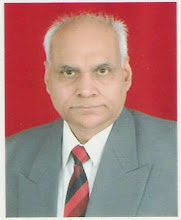

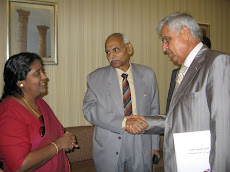
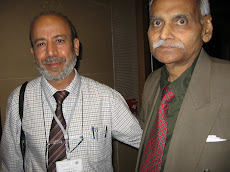
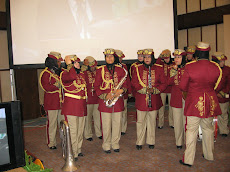
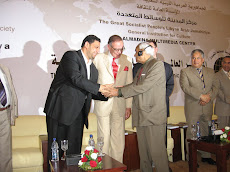
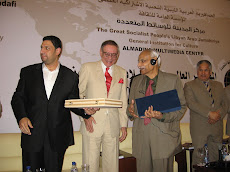
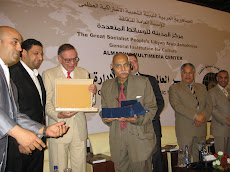


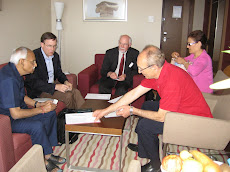
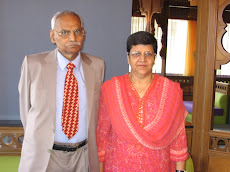
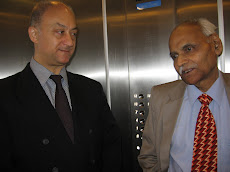
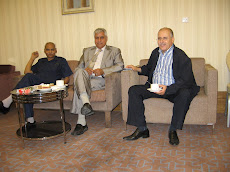
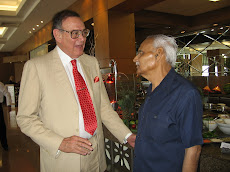
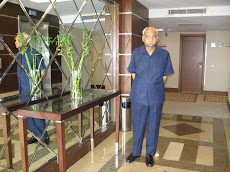
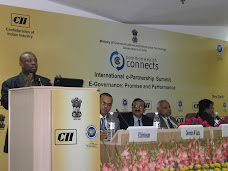









No comments:
Post a Comment